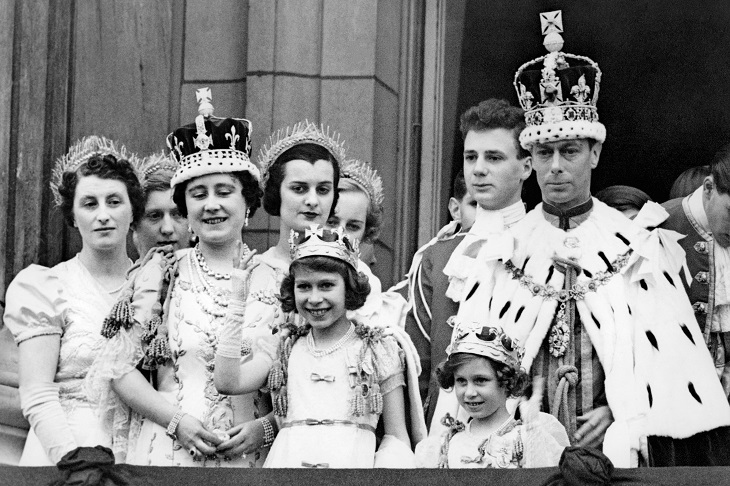The Queen has died after a reign longer than any other. Many people have found themselves touched by her death, often unexpectedly. People who did not see themselves shedding a tear have done so…
Monarchists and republicans alike have found a shared outpouring of emotion and there are reasons for that.
The Queen has been a symbolic and even mythical figure for nearly a century, representing a tradition that goes back thousands of years. She was the living figurehead of an institution that was most powerful for the British, but also important for all those connected to Britain and its monarchy, as we are in Australia.
The power of the archetype of Queen and mother, which she reflected, speaks to all of us at deep levels of psyche. It is something that has been in our soul since the beginning of civilisation.
Her Majesty has also been a part of our lives for a long time. Even those individuals who have reached a century in age have known the Queen for the vast majority of their time. Her reign alone encompassed three generations.
In an age of modern media, we have been able to watch the Queen more closely than before, and have often admired and respected the story of her life. Sometimes, we have shed a tear or two over family troubles or personal disasters that were not unlike our own. People could relate beyond her royal status to that of her role as a wife, mother, grandmother, and great-grandmother. This humanity allowed the public to understand what she might be feeling. A broken marriage, a child or grandchild gone astray that makes poor decisions, family members that reject duty and country… These are not things particular to the Queen, they are shared. Millions have watched and learned as she traversed the all-too-common tragedies and familial horrors of life.
During the last 70 years, millions have made their way to London in the hope of seeing the Queen ‘passing by,’ as the 16th-century poem described and as Robert Menzies quipped. Most who visit London will make a trip to Buckingham Palace and stand outside the gates. It is a rite of passage for tourists.
I did it in 1986 on our way to live in Belgium when I mistook flakes of snow, never seen before, for horse shit. I am not a monarchist or a Royalist but I have a good knowledge of history and a deep respect for the job done by the Queen. And it was and is a job, in a manner deserving of everyone’s respect.
Yes, the Queen lived a privileged life, but she paid the price of freedom for it, and sacrificed independence in ways most of the rest of us take for granted. She was not born to be Queen, but when it fell to her she picked up the burden and carried it with grace, integrity, steely commitment, and a wicked sense of humour for more than seven decades. What is there not to admire about such a woman?
Britain has been well served by its Queens. The Elizabeths, one and two, have been the most impressive. But it has been more to the attraction than that, with some fascinated by the British Royal Family and most a little curious if not interested. My father used to quip that they were no different to anyone else because they too had to use the toilet. His words were more colloquial, but the message remains the same.
I looked with envy at the age of six on Princess Anne’s glorious curls. She was a little younger than me and when I showed my grandmother the photo, she promised I could have curls the same. Granny gave me a perm, which, as anyone who has had a perm knows, looks nothing like the soft, silky curls of the naturally blessed. I was horrified and spent many nights rubbing my head on whatever rug or carpet I could find, trying to break down the frizz. I was fortunate that the misery did not last too long as my fine, straight hair refused to be constrained as granny and the perm had planned.
And then Charles came to Australia to go to school and at the age of 16. Like many young girls, I dreamed of a Prince, knowing it was ridiculous and fantastic, but dreaming all the same and teasing my brothers with the fantasies. Do teenage girls still dream of being discovered by a Prince? I suspect some do.
As it happened, a few years later while living in Melbourne, I found myself working with a girl who did go on to nab the Prince, at least as a lover: the then Dale Harper who would marry Anthony Tryon, a British aristocrat and close friend of the young Prince. It was supposedly a young Charles who gave her the ghastly nickname of Kanga. Dale had died by the age of 49 after some truly tragic final years. Perhaps nabbing a Prince was not so great after all.
At the end of the day, while being Royal can appear glamorous and exciting, it is very clear that it carries terrible personal costs. The Queen managed to retain her grace and composure through things that have crippled many of us. Perhaps she too was crippled in her private moments, at least for a time, but then she turned her face to the world and demonstrated a stoicism and gravitas we can only hope to echo.
In many ways my dad was right, we are all just human at the core and we live and die in the same sorts of ways, with the same sorts of sorrows and pain, the same sorts of physical demands and failings, and the same sorts of fears and joy.
The thing about archetypal figures, including Princess Diana who also evoked power as a symbolic Goddess, is that they are more than just mere mortals in how we see them, even if not in reality. The Queen appeared to know that. She knew her humanity but she also knew that she carried in and on herself, a tradition that was sourced and submerged in thousands of years, and one which was embedded in her deep Christian faith and in the human psyche.
To strive to be the best that we can be and to do the best for others is a royal quest that any of us can pursue. If we admire the Queen for nothing else, it must be for her rigorous allegiance to and defence of a system that she believed served a greater purpose, both in the name of God and in the name of people, than we might imagine. It is in that commitment to serve others, above and beyond the self, that we humans can and do achieve great things.
Elizabeth II did that in tandem and gave much to many in the doing. As a lesson in a life well lived, despite her wealth and fame, she is to be respected if not admired.
Got something to add? Join the discussion and comment below.
Get 10 issues for just $10
Subscribe to The Spectator Australia today for the next 10 magazine issues, plus full online access, for just $10.


























Comments
Don't miss out
Join the conversation with other Spectator Australia readers. Subscribe to leave a comment.
SUBSCRIBEAlready a subscriber? Log in